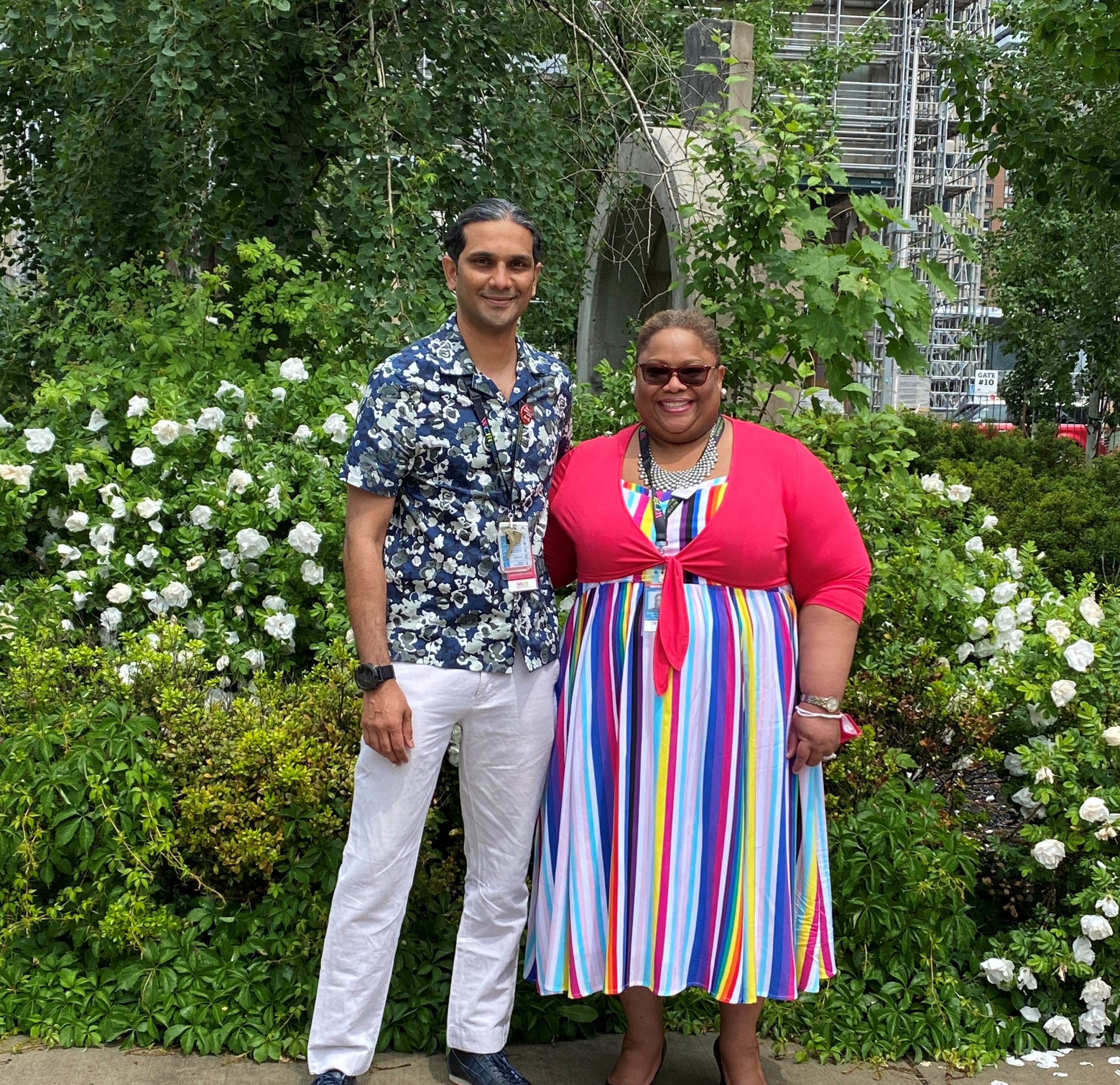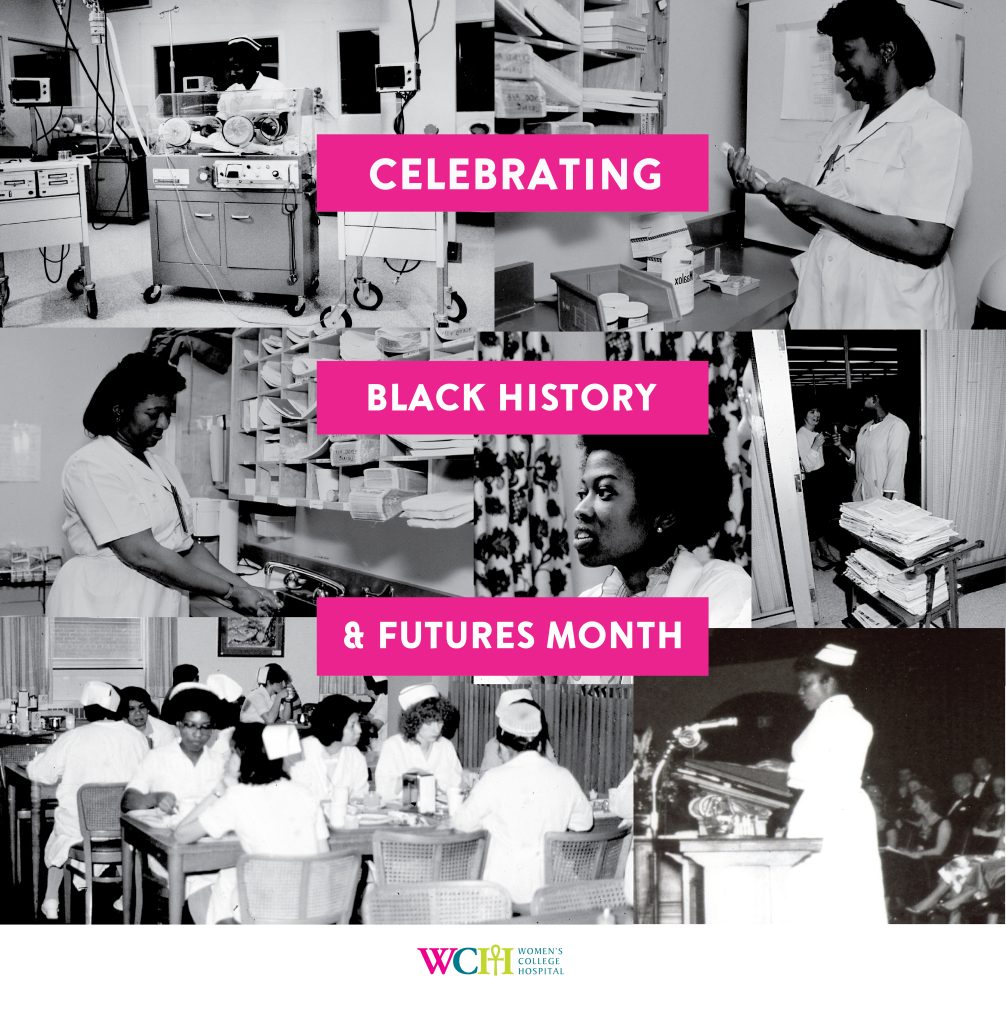Building on its foundation of equity, Women’s College Hospital (WCH) continues to take meaningful steps to further its work in fostering a culture of equity for its staff, patients, and community. Through identifying and addressing health gaps and continuing this ongoing work, WCH remains committed to creating a culturally safe environment at all levels of the organization.
Taking the First Steps to Dismantle Anti-Black Racism
In May 2020, the murder of George Floyd in Minneapolis sparked widespread protests and conversation around anti-Black racism and systemic oppression. His death, and the series of tragic events preceding it, ignited long overdue examinations of systemic racism and injustices around the world, including here in Canada. For WCH, it was a moment to learn and come together as a community — and to step up to address racial inequities and create lasting change.
Systemic anti-Black racism is pervasive across all sectors, and affects public policies, decision-making and services throughout our healthcare system. Guided by an initial set of seven anti-Black racism corporate commitments, in June 2020, WCH embarked on a journey to begin dismantling structural anti-Black racism and oppression experienced by patients, staff, physicians, and community members. To help support the formation of an anti-Black racism strategy, the organization engaged Dr. Notisha Massaquoi, Principal Consultant at Nyanda Consulting.
To truly understand the context and experiences of anti-Black racism, Dr. Massaquoi conducted a Black Community Consultation that included closed forums, one-on-one discussions, and an anonymous survey that engaged Black staff, physicians, and learners at WCH. The resulting report was integral to informing the organization’s next steps in anti-Black racism work and its recommendations were used to develop 12 Anti-Racism and Anti-Oppression Corporate Commitments. Ranging from developing mandatory anti-Black racism training for all staff to creating an Office of Equity and forming an Anti-Black Racism Board Task Force, the corporate commitments were designed to effect meaningful and sustainable change at all levels across the organization.
A Committee to Help Guide the Way
As part of the corporate commitments, Sandra Smith, Vice President, People, Culture and Equity at WCH, created a permanent Corporate Equity Committee (CEC) comprised of members from across the organization who bring a variety of experiences and perspectives to the table. Reporting directly to Heather McPherson, WCH President and CEO, the committee helps advise on inclusion and equity structures, processes, and resources.
“Creating new policies and practices around anti-racism and equity was one of our main motivations for creating this committee,” says Harikrishnan Gopalakrishnan Nair, Registered Physiotherapist and Co-Chair of the CEC.
Using key learnings from the COVID-19 Equity Advisory Group – which was formed to integrate equity at every level of the hospital’s pandemic response – the Corporate Equity Committee is working to create tools and processes that ensure a safer and more accessible experience for those who face the greatest barriers to care.
In line with WCH’s commitment to equity and to be an organization that reflects the diversity of the community, the CEC provides leadership and support for the anti-racism and anti-oppression work that is essential to providing equitable care and creating a work environment that’s safe and respectful for all team members.
Charting a CLEAR Way Forward
Another key component of the corporate commitments was the formation of an Office of Equity to help lead the anti-racism and anti-oppression work being done at WCH. With the support of the Corporate Equity Committee, the hospital recruited Suzanne Charles Watson as its first Director of Anti-Racism, Equity, and Social Accountability.
“When I first saw this job opening, I was trying to get a sense of how serious the work was, and to see if this was another set of performative actions, which is not something I was interested in doing at all,” says Charles Watson. “After having conversations with WCH’s senior leadership team and Hari, co-chair of the Corporate Equity Committee, I was convinced this work was serious for the organization.”
Charles Watson is working to build up the Office of Equity, which will help to collect data, assess gaps, and inform policies and practices that will facilitate a safe and inclusive hospital for all staff and patients. And while much work has been done to assess the current culture of equity and inclusion within the hospital, Charles Watson is focusing on the future of equity and accountability with what she calls a CLEAR Way Forward: Culture and belonging; Learning; Engagement and outreach; Accountability; and Research, collaboration, and innovation.
Charles Watson’s work is already having positive impacts, including around language inclusivity and accessibility, working directly with the Patient Relations team.
Language inclusivity relates to both language interpretation services as well as how we speak to and about each other. Charles Watson would like to see language services expand to diverse languages commonly used in the community. She’s also focused on language inclusivity in regard to how language is used with patients and staff.
“Recently, we had a family reach out to us with concerns that we were misgendering one of our patients, and so that’s something the Office of Equity was involved in resolving,” Charles Watson explains.
As one of the only hospitals in Canada providing gender-affirming surgeries, as well as a strong advocate in Toronto’s LGBTQ2S+ community, inclusive and appropriate language is a first step to ensuring positive patient experiences, including properly gendering patients when speaking to or about them.
Another area of focus for Charles Watson will be to update recruiting practices, starting with accessibility. “When you look broadly at the demographics, we have fairly good representation at WCH,” says Charles Watson. “But while we are bringing in people from many different communities, we’re not necessarily promoting them into leadership. So, a big focus is building programs to not only attract and recruit a diverse staff, but to retain and develop them for leadership roles as well.”
The Road Ahead
More than 100 years ago, WCH was founded on equity in the pursuit of providing accessible care for women. Over time, the organization has come to understand its commitment to equity more broadly, including addressing the disparities experienced by those across the gender spectrum and for racialized people when accessing healthcare. The journey towards a more inclusive and just world is an evolving and ongoing process that will require change and commitment at all organizational levels. Through the leadership and support of the Office of Equity and Corporate Equity Committee, as well as with the recruitment and guidance of Black members on the Board of Directors, WCH is building a strong foundation for action, advocacy and influence across the health system.


